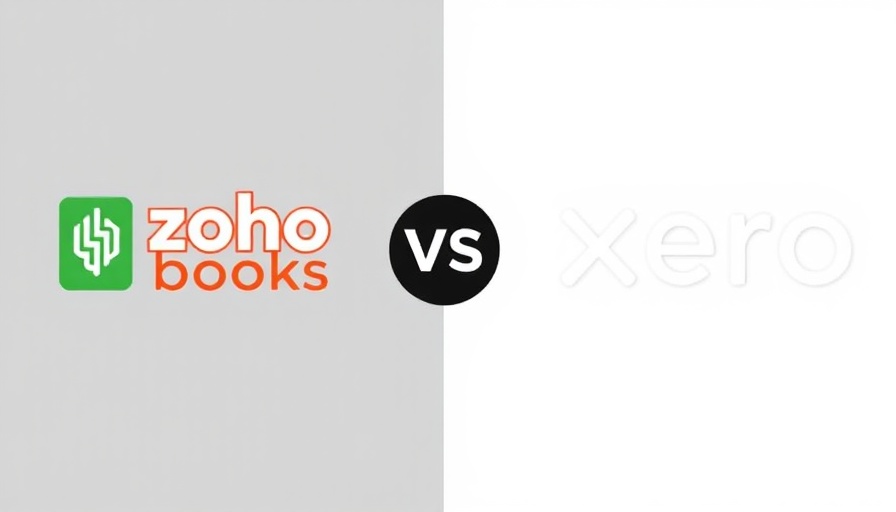
Choosing Between Zoho Books and Xero: Which is Right for Your Small Business?
As small business owners approach the crucial task of managing their finances, the choice of accounting software can significantly impact their efficiency and productivity. Two platforms that frequently rise to the top of comparisons are Zoho Books and Xero, each offering a unique blend of features tailored for different business needs.
Understanding Your Business Needs
If your business requires advanced inventory management and flexible pricing options, Zoho Books may be the ideal choice. With a robust mobile app and capabilities such as advanced inventory tracking, it accommodates businesses looking to scale without overwhelming costs. In contrast, Xero shines for businesses with larger teams requiring unlimited user access and a more straightforward user interface.
Feature Set and Usability Comparison
When evaluating the features, Zoho Books scores high with impressive automation capabilities and customization for invoicing, providing users with significant flexibility in how they manage transactions. On the other hand, Xero offers a dedicated fixed asset management feature that appeals to companies focused on long-term asset tracking. The decision often hinges on whether your emphasis is on comprehensive features or ease of use.
Pricing: The Cost Factor
Pricing plays a pivotal role in decision-making for small businesses. While Zoho Books presents lower entry-point options, its pricing escalates significantly as businesses grow, presenting potential challenges for long-term planning. Meanwhile, Xero provides a tiered structure without limiting the number of users, ensuring predictable costs that scale seamlessly with business growth. This structure may offer a clearer path for budgeting over time.
Mobile App Performance: Essential for On-the-Go Businesses
With a growing reliance on mobile technology, having a capable app is essential. Zoho Books stands out in this regard, allowing users to perform a wide range of accounting tasks—from invoicing and bill tracking to expense categorization—directly from their mobile devices. Meanwhile, Xero's mobile app is more limited in functionality, requiring users to switch to the desktop version for more complex tasks.
Customer Support: Don't Underestimate the Importance
The level of customer support can greatly affect user satisfaction. Zoho Books provides multiple avenues for support, including live chat and a customer service hotline, giving users peace of mind when they face issues. Xero, while offering robust self-help resources, falls short with limited support options, which could leave users in need of urgent assistance feeling frustrated if they encounter issues.
Final Thoughts: Picking the Right Tool for Success
The choice between Zoho Books and Xero ultimately depends on your specific needs as a small business. For those needing thorough inventory management, advanced features, and strong customer service, Zoho is an excellent choice. On the other hand, businesses looking for straightforward usability, unlimited users, and predefined pricing will find Xero to be their preferred option. Understanding the nuances of each can empower small business owners to make an informed decision that supports their goals for growth and efficiency.
In conclusion, delve deeper into the accounting software landscape, take advantage of free trials to assess features firsthand, and choose the platform that aligns most closely with your business's operational needs. Your choice might just streamline your financial activities and contribute significantly to your business's success.
 Add Row
Add Row  Add
Add 




Write A Comment